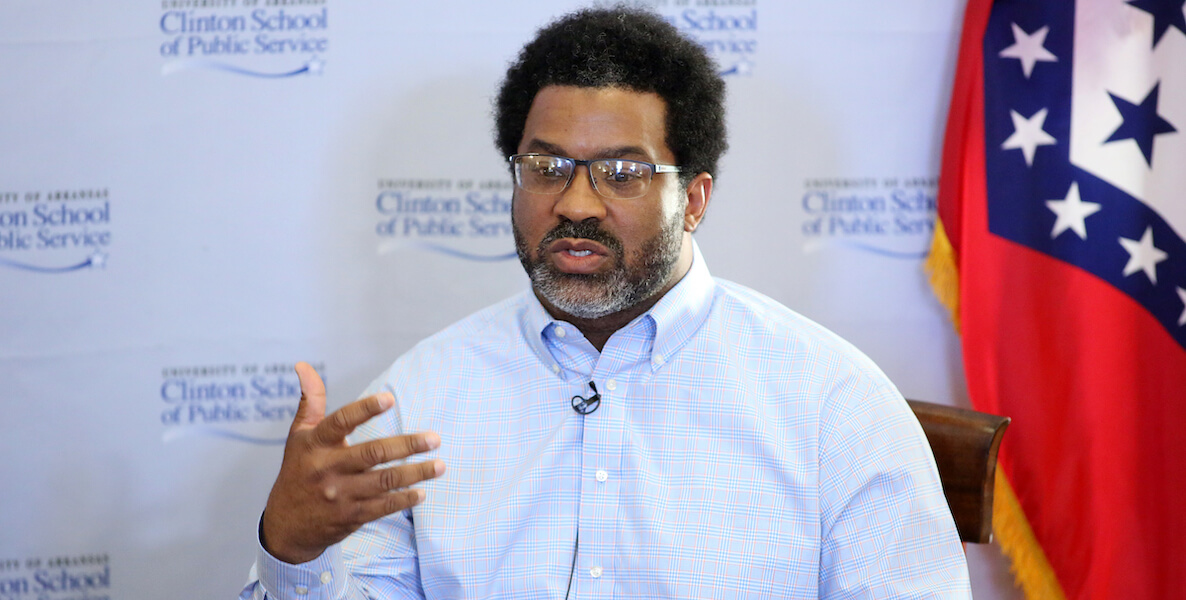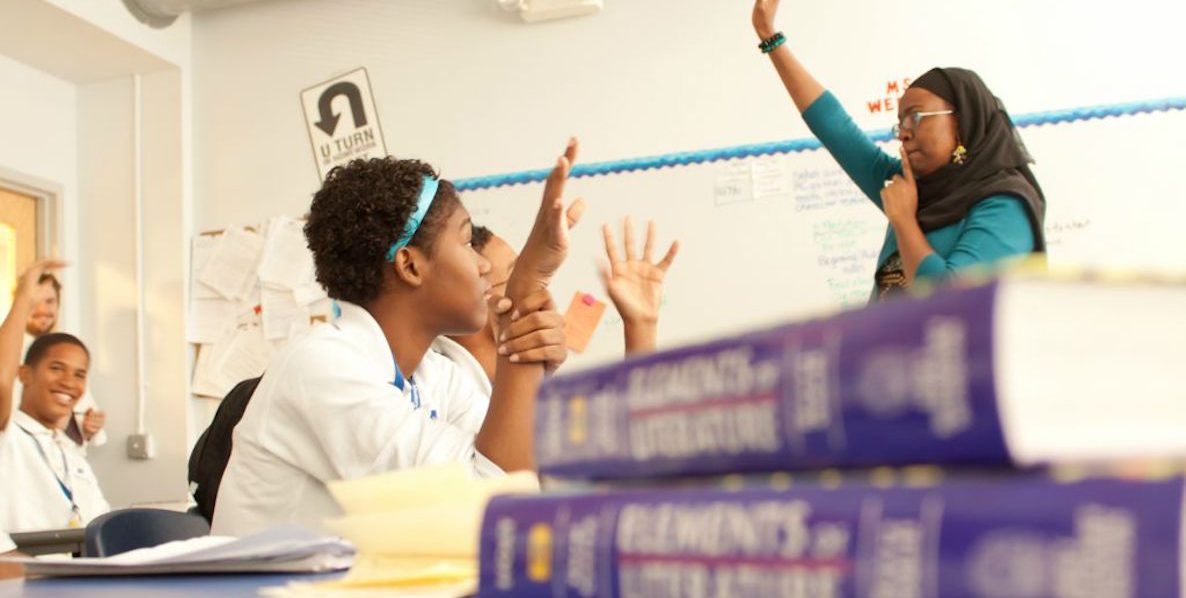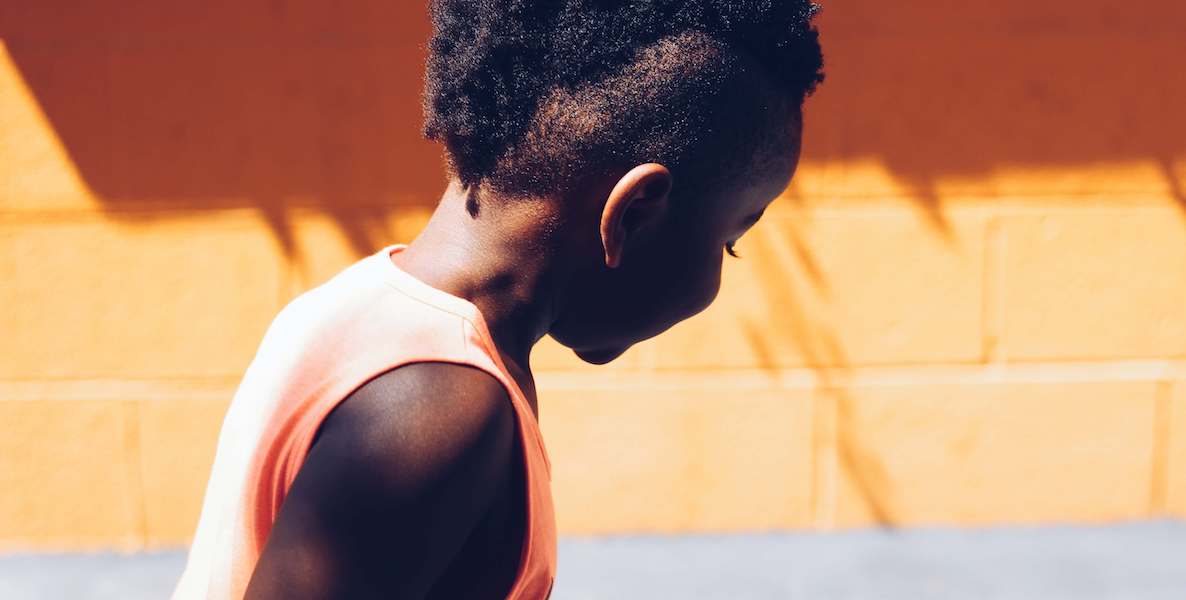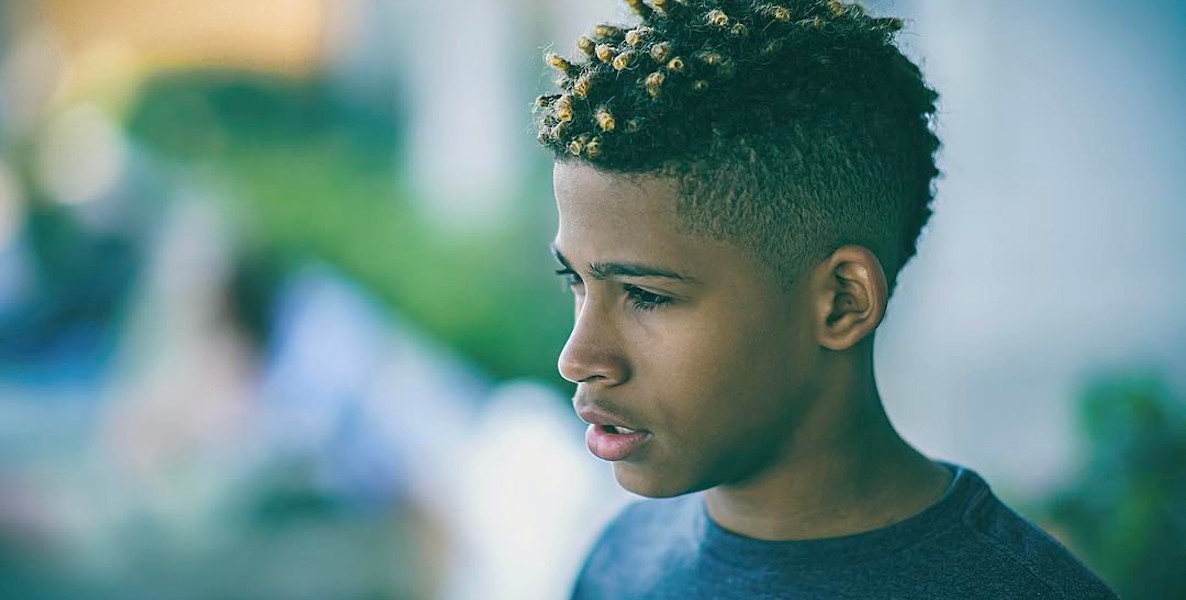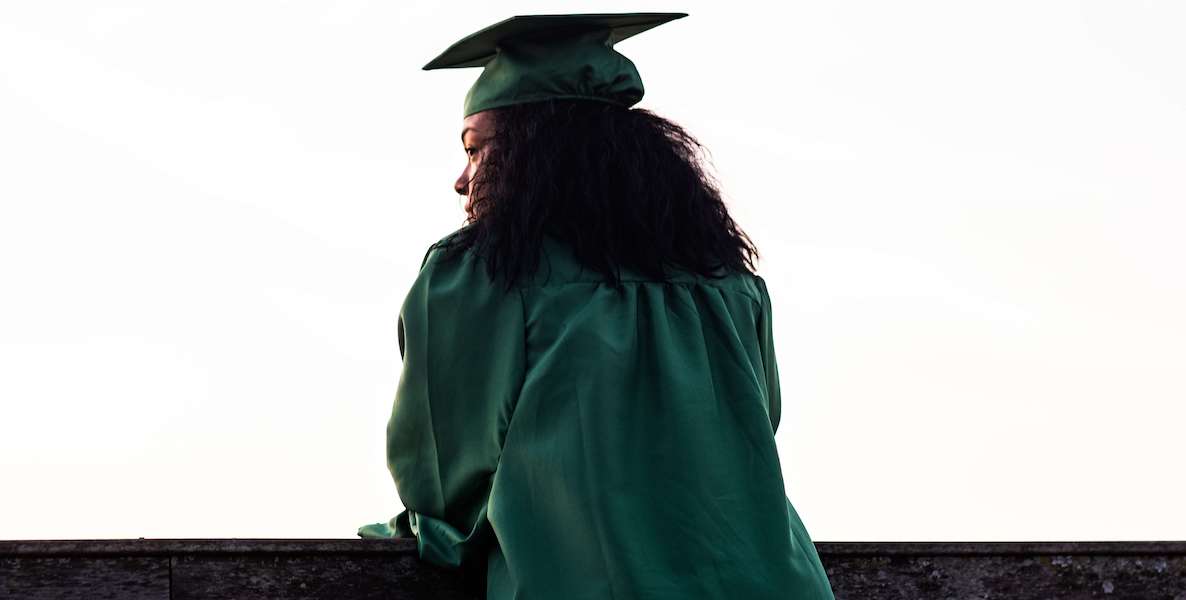“If you have come here to help me, you are wasting your time, but if you have come because your liberation is bound up with mine, then let us work together.” —Aboriginal rights leaders
A McKinsey & Co. study on the impact of Covid-19 has told the nation that “the pandemic has set back learning for all students, but especially for students of color.” This, the study goes on to say, offers a terrible, bleak outlook for these children: “Along with robbing them of lives and livelihoods, school shutdowns could deny students from these communities the opportunity to get the education they need to build a brighter future.”
In response, the study calls for a full press of sweeping actions—everything from new moonshot initiatives to doubling down on evidence-based programming, such as expanded learning time, high-intensity tutoring and acceleration over remediation.
As a Black educator-activist, I ask all those in a position to implement such measures to consider the following before you begin.
MORE ON EDUCATING WHILE BLACK
This widened achievement gap reflects the chasm between the ability of teachers and school leaders and the potential of children of color. The root cause is not the pandemic, but instead the pre-existing racism endemic. The pandemic has only further exposed the failure of schools to create educational experiences that are worthy of and trustworthy for students of color and their families.
Even with learning losses projected to steepen as a result, how can we be surprised that “Black and Hispanic students continue to be more likely to remain remote” and “Black and Hispanic parents are less likely to want their children to attend in-person classes”?
It’s not only, or mostly, because many lack computers, internet access, digital skills and study spaces in their homes. Or because their families lack money, time and social advantages — not to mention equitable access to health care — during a pandemic.
It isn’t what our students and their families lack nearly as much as what their schools lack. The gross deficits accumulated when schools are unable to transition from their racist past to an anti-racist present.
Younger students and their families choose not to stay connected to school, and older students drop out, because they don’t see the value of an “education” that doesn’t value who they are: their racial identities, what has happened to them and what problems they want to solve.
They are ghosting, or altogether leaving schools for good, because their majority white teachers — who overdiscipline students of color while underexpecting them to achieve — haven’t shown them the love they deserve. Their teachers can’t see their genius.
The pandemic has only further exposed the failure of schools to create educational experiences that are worthy of and trustworthy for students of color and their families.
If they did—if, during the pandemic, schools in marginalized communities didn’t just become community hubs for basic needs such as meals, health care and child care, but also for educational experiences that nurture the curiosity, mastery and purpose of the children in their charge — then Black and brown students and their families would show up and stay engaged.
Their checking out during the pandemic in greater numbers than their white peers also shows a lack of trust in student-teacher relationships. So, in addition to investing in expanded learning time, high-intensity tutoring and acceleration over remediation, schools must invest and commit to doing the harder work of building, strengthening and healing these relationships.
Until that happens, we won’t be able to accelerate our work with students to address the interrupted learning that occurred with the onslaught of this most recent pandemic.
But to be clear: Black children don’t need white saviors. They need teachers who can reflect their histories and what’s possible, teachers who believe in their limitless futures. Research has proven the impact of this racial mirroring effect. Black students who have a Black teacher by third grade are 13 percent more likely to enroll in college after graduation, with high school dropout rates plunging by 39 percent. If they have two Black teachers, Black students are 32 percent more likely to go to college than their peers who did not have any.
If your school doesn’t have any Black teachers, or has too few, do the hard work to recruit and retain them. Consider the innovations and evidence-based solutions for increasing teacher diversity and strengthening the Black teacher pipeline. The Center for Black Educator Development was designed for their discovery and promotion.
Here are some ways schools can take action and demonstrate a commitment to anti-racism that is essential for reducing pandemic learning loss:
1. Invest in Black teachers
When people stop wearing masks, and the pandemic is over, the racist endemic still needs to be wiped out. Our health, from one angle, may not be under attack by Covid-19, but racism will always negatively impact our health. Black educator-activists and our allies are critical political actors in this fight.
There are no short-term solutions, because we are not dealing with a short-term issue. Black teachers were systematically removed from schools in the thousands after the landmark Brown v. Board of Education U.S. Supreme Court decision, effectively undermining the Black teacher pipeline, so we have to systemically place them by powering the Black teacher pipeline. The Center for Black Educator Development starts early in secondary school to recruit the next generation of Black educator-activists. We create alternative pathways, including teacher residencies and new certification programs. We innovate teacher retention strategies.
And we empower Black educators to lead. The experiences they share with their students and families in similar communities will inform their strategies for closing achievement gaps and responding to educational debts. We need them more than ever to take leadership roles as school districts around the country try to restrict the teaching of critical racial theory and call anti-racism racist.
Who better than Black educators to help their white allies whose teacher-prep programs did not train them in how to teach Black and brown children? They weren’t taught Black pedagogy or anti-racism teaching skills. White educators should learn from their Black colleagues.
Watch how they build and handcraft trust. How they genuinely connect with students. How they show Black families they believe in their children’s promising futures. They understand that trust is invaluable and inimitable.
White folks, will our lives matter when your stocks rebound? When you return to work & when your kids return to school? When you’re able to patronize your fav stores & beaches? When the NHL, NBA, & NFL return? When your fav fly fishing spots reopen? #protests #BlackLivesMatter
— Sharif El-Mekki (@selmekki) June 13, 2020
2. Get in the right mindset (and heartset)
When we at the Center for Black Educator Development talk about the achievement gap among students, we are talking about the mindset gap of majority white educators, the chasm between a mental fixation and framework of having low expectations of Black and Brown students and their actual potential. What could narrow this?
The more than 1,000 Black educators who came together for the national convenings of The Fellowship: Black Male Educators for Social Justice made it abundantly clear that the unplanned theme for three days of talks and workshops was love. That’s because everyone in that large hall knew that it’s love that fuels achievement, not any kind of rescuer complex.
Children know the difference. You can’t fake authenticity with them. They know if you’re labeling them with learning loss. If you’re insisting on seeing them in your fabricated deficit terms, rather than as they are. All while seeing yourself as their irreplaceable heroes. They know if you haven’t looked at yourself and they see what you may lack as an educator.
3. Recognize and leverage the ways children learn outside of school
Discover the educational assets they have at home and throughout the community. Who they learn from. What they learn. How they learn.
Disabuse yourself of the notion that students don’t learn anything from their families or that the worst place for them to be is with their family and community of people who are like them and love them. That’s a bad life lesson to impose on them—and on yourself. It’s immoral. It’s racist.
Rather, collaborate with their mentors outside of school. Get in on their brain exercise and learning enterprises.
Find out what motivates and excites their learning. Respect their intellectual genealogy and capacity. If you don’t know, ask. Start with listening to them and their families.
4. Track your progress in creating anti-racist schools where Black and brown children thrive
Given the push for anti-racist education, and the racist backlash against it, anti-racism has taken center stage. No wonder there’s growing interest in establishing metrics for measuring the anti-racism of a school, class and teachers.
No need to reinvent the wheel. These metrics already exist. In addition to student test scores, look at their attendance rates, and their teachers’ attendance and retention rates. Look at your school’s teacher diversity. How much racial student-teacher parity have you achieved? Do you, as educators of other people’s children, consistently seek feedback? Do families respect and trust you? Do you know their aspirations and goals for and accomplishments of their children?
Anti-racist metrics exist. But we can add more standardized measures, such as student, teacher and family satisfaction surveys. We can hold not just exit interviews with Black educators, but insight interviews before they feel they have to leave our schools—or worse, the education field.
5. Educate yourself. Know our collective history.
Systemic racism, racial strife, state-sanctioned murders of Black people, health care inequities that robbed Black lives during a pandemic. This was called the Red Summer of 1919. Red for the bloodbath suffered by Black families and communities.
Fast forward 101 years later, to 2020, to horrifyingly and tragically familiar times. Try to imagine being a Black child trying to learn in this context in these scary conditions then and now. Imagine being a Black parent trying to raise and protect your children in this context and in these inhumane conditions then and now.
The only way to ensure racism cannot persist through the next 101 years is by teaching our children not Black history, but the full, truthful history. And the ones best positioned to do that are Black educator-activists and our allies.
RELATED: Let’s celebrate the storytellers sharing the unknown stories of Black life in Philadelphia
Teachers who teach Black children a history that reflects them and tells them why they were erased. Teachers who teach white children empathy and how to collaborate, united in our fight for liberating education. How our teachings have to uproot a nationwide racist endemic, not merely the extenuating losses of the pandemic.
We have a history of Black men and women taking on the role of educator-activists who risked their lives to learn and teach in these ways. When they were denied classrooms, they built schools in churches, tunnels and boats — where federal laws upended racist state laws making illegal the education of Black children.
Black educator-activists today are continually informing their teachings with a Black pedagogy, culture and world view that honor the work of our predecessors. Harvard professor Dr. Jarvis Givens, author of Fugitive Pedagogy, clearly explained their unique historic distinction as “political actors” in liberating education for Black students: “Work done in their classrooms had direct implications for the Black freedom struggle, a movement that was sparked and carried out by their students.”
Black educator-activists invest in a symbiotic relationship where educators teach to equip the next generation with the tools, armor, language and strategies to advance the banner for racial and educational justice.
The only way to ensure racism cannot persist through the next 101 years is by teaching our children not Black history, but the full, truthful history. And the ones best positioned to do that are Black educator-activists and our allies.
We know education can lead to power: the very thing racists and their systems want out of reach for people of color. Stokely Carmichael explained it in unforgettable terms: “If a white man wants to lynch me, that’s his problem. If he’s got the power to lynch me, that’s my problem. Racism is not a question of attitude; it’s a question of power.”
So we see teaching as training our replacements.
Our teacher apprenticeship program, Freedom Schools Literacy Academy, was designed around leveraging this intergenerational effect by having Black elementary students taught by Black college education majors and Black high school teacher apprentices. All while leveraging Black pedagogy, basking in Black culture and sharing world views.
And the results speak for themselves. Students make leaps in literacy, and their college student teachers and high school teaching assistants end up more deeply committed to teaching Black children. Everyone’s Black identity is affirmed and celebrated.
When there are states trying to pass laws banning the discussion of race in history lessons. When there are educators who consider themselves allies but want to talk only about how much things have improved — usually pointing to an outlier, like President Barack Obama and his children, who attended elite schools — as proof of this progress. When there’s an alarmingly popular racist backlash (more systemic Black-lashing) to anti-racism in schools and school districts.
More than ever, we need Black educator-activists liberating education. We need their ingenuity, insights, reflections and leadership. We need the teachers who actively create socio-emotional contexts and conditions that incubate their students’ potential and aspirations. We need the people who connect, never championing singularity and forgetting the masses still suppressed.
We need today’s education activists who courageously implement pedagogical practices within school walls that instill political values and ideals their students put into action outside the classroom. That’s because we know we aren’t just teaching students, but building citizens.
We understand education is paramount. That without educational justice, there cannot be social justice. That’s because educational and racial justice are the same thing.
Black Educator Hall of Famer Mary Church Terrell likes to remind us that we must “lift as we climb.” Nothing embodies this more than when Black educators reach a room full of Black children and reflect their limitless futures through their teaching and their mindsets.
Sharif El-Mekki founded The Fellowship: Black Male Educators for Social Justice. He writes for Phillys7thward.org and is a part of the 8 Black Hands podcast. This post was originally published on The 74 Million‘s website.
The Citizen welcomes guest commentary from community members who stipulate to the best of their ability that it is fact-based and non-defamatory.
Header photo by Andre Hunter / Unsplash



